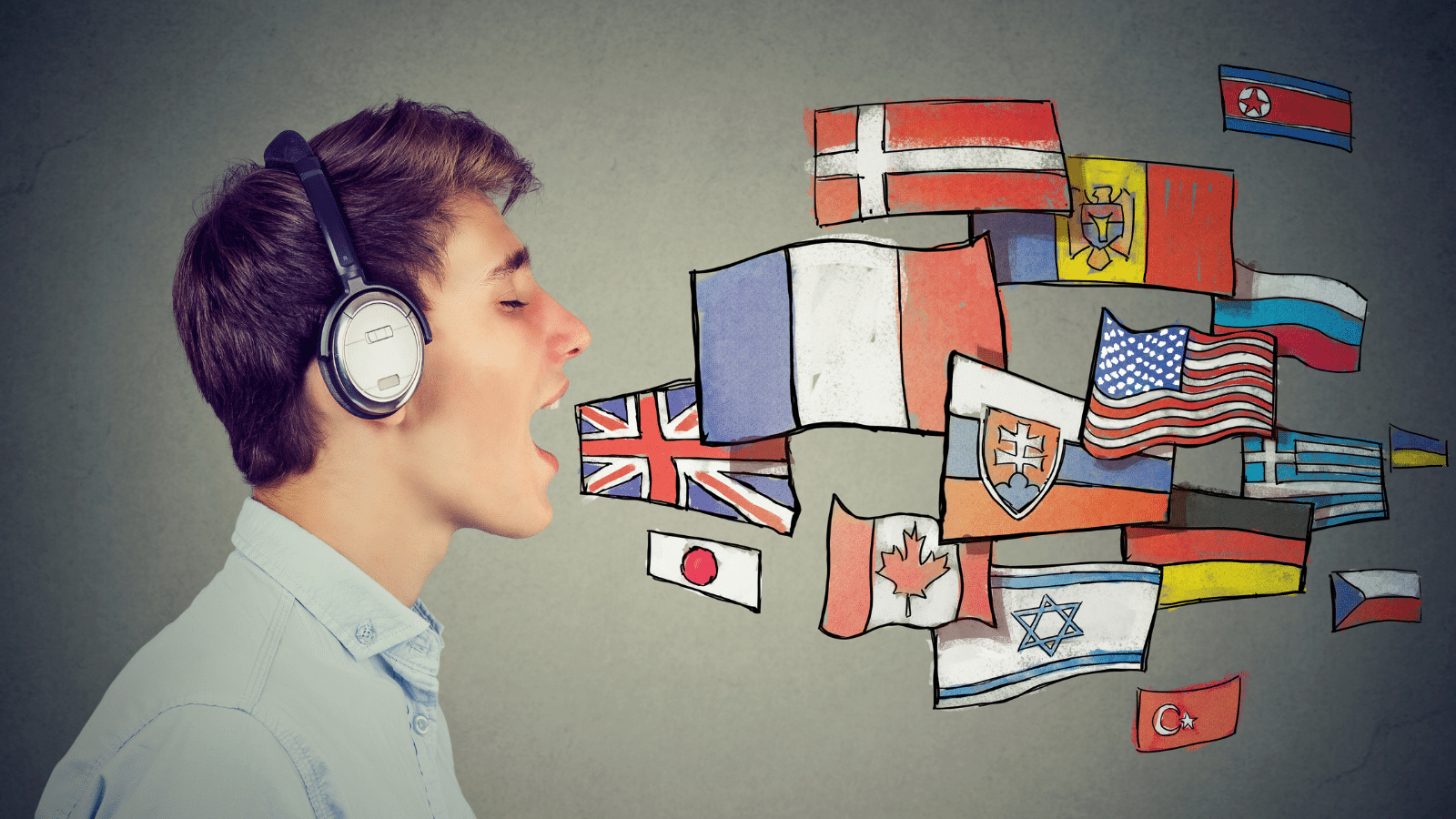The things you say can give clues as to whether you are a conservative or liberal. Depending on the situation, you may not want to be forthcoming or perhaps you do. These are 18 phrases you are saying that gives you away as a conversative or liberal.
“Personal Responsibility”: A Conservative Mantra

Frequently used by conservatives, the term “personal responsibility” underscores the belief in individual accountability and self-reliance. It suggests a minimization of government involvement in personal affairs, promoting the idea that individuals should be able to navigate their own successes and failures. Liberals may critique this phrase, arguing that it oversimplifies complex socio-economic issues and disregards the need for a social safety net.
“Social Justice”: A Liberal Call to Action

“Social justice” is a term championed by liberals, reflecting a commitment to equality and the fight against systemic oppression. It often encompasses issues like racial equality, LGBTQ+ rights, and income distribution. Conservatives might argue that this term is used to promote policies that lead to excessive government intervention and that it can overlook individual accountability.
“Family Values”: Conservatism’s Cornerstone

The phrase “family values” is a stalwart in conservative rhetoric, often tied to traditional views on marriage, religion, and gender roles. It reflects a commitment to preserving established social structures and moral codes. Liberals might challenge this term, viewing it as exclusionary and as a means of resisting progressive changes in society.
“Climate Change”: A Liberal Priority

Liberals frequently use the term “climate change” to highlight the urgent need for environmental protection and sustainable practices. It reflects a belief in scientific consensus and a commitment to future generations. Conservatives, on the other hand, might use terms like “climate realism” to express skepticism or advocate for a balanced approach between environmental concerns and economic growth.
“Limited Government”: The Conservative Ideal

“Limited government” is a phrase beloved by conservatives, encapsulating the belief in reducing government size and intervention in favor of market-driven solutions. It champions individual freedom and economic liberty. Liberals might critique this approach, arguing for the need for government to regulate industries, provide social services, and ensure equal opportunities.
“Equity”: A Liberal Lens on Equality

The term “equity” is increasingly used by liberals to describe the pursuit of fairness and justice, going beyond equality to address systemic barriers. It calls for active efforts to rectify historical injustices and create level playing fields. Conservatives might question this term, arguing that it could lead to preferential treatment and undermine meritocracy.
“Pro-Life vs. Pro-Choice”: The Abortion Debate

These terms represent the polar ends of the abortion debate, with “pro-life” associated with conservative views opposing abortion and “pro-choice” tied to liberal views supporting a woman’s right to choose. Both phrases reflect deeply held beliefs about life, autonomy, and morality. The ongoing debate showcases the stark ideological divide between conservatives and liberals on this issue.
“Gun Rights”: A Conservative Rallying Cry

The phrase “gun rights” is central to conservative ideology, reflecting a strong belief in the Second Amendment and individual rights to firearm ownership. It is tied to values of self-defense, liberty, and resistance to tyranny. Liberals advocating for “gun control,” focus on reducing gun violence through stricter regulations.
“Medicare for All”: A Liberal Vision for Healthcare

“Medicare for All” represents a liberal push for universal healthcare, aiming to ensure medical services are accessible to all regardless of socio-economic status. It reflects a belief in healthcare as a human right and a government responsibility. Conservatives might oppose this term, citing concerns over feasibility, cost, and potential impacts on healthcare quality.
“Traditional Values”: Conservatism’s Nostalgic Appeal

“Traditional values” is often used by conservatives to express a longing for past norms and moral codes, seeing them as foundations for a stable society. It can encompass views on family, religion, and national identity. Liberals might see this term as regressive, advocating instead for progressive values that embrace diversity and change.
“Inclusive Language”: Liberalism’s Linguistic Shift

“Inclusive language” is a term championed by liberals, reflecting an effort to use words that are considerate of diverse identities and experiences. It aims to create welcoming environments and challenge discriminatory language. Conservatives might view this trend skeptically, possibly as political correctness gone too far.
“Small Business Support”: A Common Ground?

Both conservatives and liberals use the phrase “small business support,” but often with different implications and policy ideas. Conservatives may emphasize deregulation and tax cuts, while liberals might focus on access to resources and fair labor practices. This sub-heading explores how a shared value can still reflect political divides.
“National Security”: Conservative Dominance?

“National security” is a term frequently utilized by conservatives to justify strong military presence and surveillance measures, reflecting a prioritization of safety and order. Liberals might use the same term but advocate for a more diplomatic and restrained approach to international relations.
“Progressive Policies”: The Liberal Push Forward

“Progressive policies” is a term liberals use to describe initiatives that seek to address social inequalities and promote sustainable practices. It reflects a belief in active government intervention and change. Conservatives might challenge this term, associating it with excessive spending and government overreach.
“Tax Cuts”: The Conservative Economic Staple

The phrase “tax cuts” is often associated with conservative economic policy, promoting the idea that reduced taxation stimulates economic growth and individual prosperity. Liberals might critique this approach, arguing for progressive taxation to fund social services and reduce inequality. This sub-heading explores the ideological underpinnings of tax policy debates.
“Diversity and Inclusion”: Liberal Values in the Workplace

“Diversity and inclusion” are widely embraced by liberals, reflecting a commitment to creating equitable and respectful environments, particularly in professional settings. Conservatives might support diversity but argue against what they perceive as forced inclusion or affirmative action policies. This sub-heading examines how workplace values reflect political ideologies.
“Law and Order”: A Conservative Call

“Law and order” is a phrase frequently used by conservatives to express a commitment to strong policing and criminal justice policies that maintain stability and safety. Liberals advocating for “criminal justice reform,” focus on addressing systemic issues within the legal system and promoting rehabilitation. This sub-heading explores the balance between security and justice.
“Renewable Energy”: A Liberal Environmental Focus

“Renewable energy” is a term popularized by liberals, highlighting a push towards sustainable and eco-friendly energy sources to combat climate change. Conservatives might support renewable energy but emphasize an “all-of-the-above” energy strategy that includes fossil fuels. This sub-heading delves into the energy debates defining political lines.
21 Things That Shout You’re “Lower Class” According To Men

Class wars creep up in all aspects of life, including dating. We take a look at the things that men believe are telltale signs that you are lower class.
21 Things That Shout You’re “Lower Class” According To Men
Boomer Zoomers vs. Millennial Meh: 10 Cars the Older Gen Loves but Millennials Just Can’t Stand

The change in the automotive industry has been incredible over the year. Baby boomers born between 1946 and 1964 can’t get enough of the cars listed below, as muscle cars emerged in the 1960s, and new technologies appeared in the 1970s and 1980s. You can imagine why boomers genuinely appreciate these vehicles.
Boomer Zoomers vs. Millennial Meh: 10 Cars the Older Gen Loves but Millennials Just Can’t Stand
Across the Pond Disdain: 18 Horrendous American Habits Foreigners Just Can’t Stomach

There is a lot to love about America, from the bright lights of New York to the incredible breakfasts, but foreigners also dislike many things. We look at everything from poor public transport to an intimidating tip culture, sharing 18 things that America could be better at.
Across the Pond Disdain: 18 Horrendous American Habits Foreigners Just Can’t Stomach
Out with the Old: 18 Gen X Fads That Millennials and Gen Z Just Can’t Vibe With

While some old habits die hard, there are some things that Gen X need to eliminate as they are no longer relevant.
Out with the Old: 18 Gen X Fads That Millennials and Gen Z Just Can’t Vibe With
18 Unpleasant States You Might Want to Skip on Your Next Trip

When thinking of America, we don’t expect there to be boring or unpleasant places to visit. We see all the different states on the TV, and they show the best parts. However, there are some states you won’t want to visit, and you should brace yourselves if you ever happen to stumble into them.
18 Unpleasant States You Might Want to Skip on Your Next Trip






